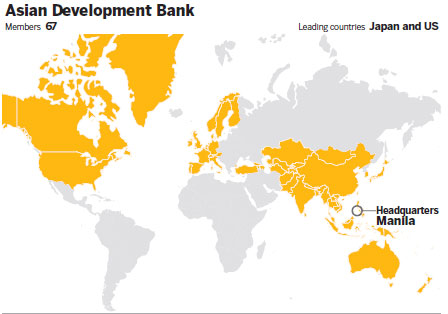China checkmates US on Asia bank
Updated: 2015-04-03 11:06
By Zhao Yinan(China Daily)
|
||||||||
$50 billion in capital
If Japan does join, it means the US will be the only G8 nation not clear about its attitude towards the bank project, set to be launched by the end of this year with initial capital of $50 billion.
Kyrgyzstan and Sweden applied on Tuesday and Israel announced on WSednesday it had applied, bringing the total number of would-be founding members to 47 across five continents.
Even before the announcement of when it will launch, the AIIB has dominated headlines, resulting in clashes of opinions on whether the bank can succeed in making money through infrastructure construction - as well as establishing a new financial system to reduce the US dollar's influence on the global economy.
"It would surprise me if a profitable deal with relatively low risk does not attract many investors," said economist Ding Yifan at the State Council's Development Research Center.
With the primary goal to finance railways, roads and other buildings in developing Asian markets, the AIIB is more likely to make a profit than the Japan-dominated Asian Development Bank, which also focuses on poverty alleviation, education and environment improvement, he said.
"The market is huge, but demand has been held back because of complex procedures and the additional conditions set by existing regional fund providers," Ding said. "Also, the long return cycle and geopolitical risks have put off private investors from entering to the sector."
According to the ADB, demand for infrastructure investment in Asia will top $800 billion by 2020, an amount far beyond the funding capability of existing multinational financial institutions.
When Chinese President Xi Jinping first proposed establishing the AIIB, during a visit to the Indonesian capital of Jakarta in 2013, it generated little buzz.
Only when the bigger picture became clearer did people see how China could potentially deal with its excessive industrial production capacity and at the same time attempt to "go beyond a regional development institution and influence the global financial order", said Shen Jianguang, chief Asia economist at Mizuho Securities Asia.
Shen said he learned of the difficulties facing a developing country in getting a loan while working at the International Monetary Fund, which is based in Washington DC. There, he said, even small amounts of money - several million dollars - come with "lengthy additional conditions and negotiations with local administrations".
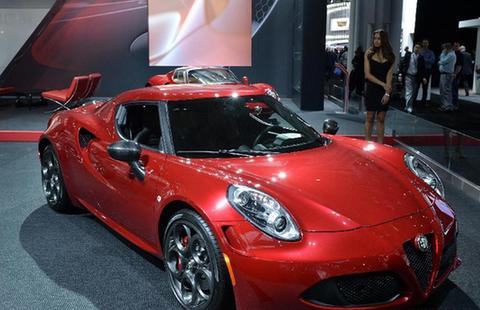
 2015 New York International Automobile Show kicks off
2015 New York International Automobile Show kicks off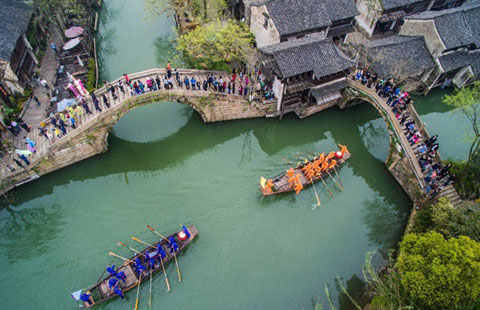
 Ancient 'Xiangshi' kicks off in Wuzhen
Ancient 'Xiangshi' kicks off in Wuzhen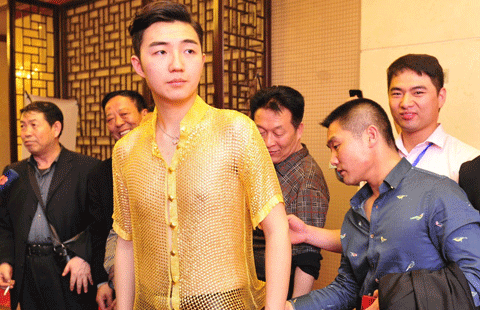
 Golden moments at jewelry show
Golden moments at jewelry show
 Luoyang, the ancient capital of thirteen dynasties
Luoyang, the ancient capital of thirteen dynasties
 Across America over the week (from March 27 to April 2)
Across America over the week (from March 27 to April 2)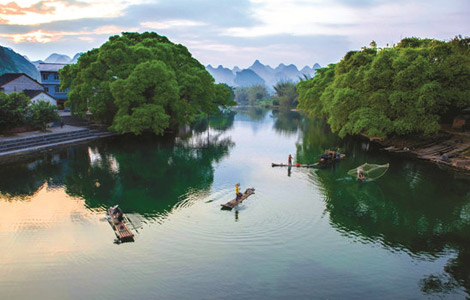
 Off the beaten path: China's top 'surf' breaks
Off the beaten path: China's top 'surf' breaks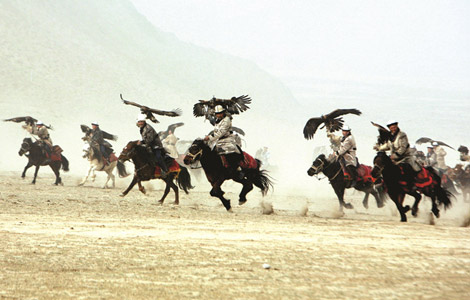
 Where eagles still soar
Where eagles still soar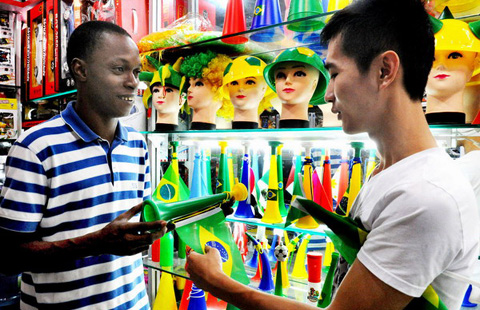
 Top 5 cooperation priorities in the Belt and Road Initiative
Top 5 cooperation priorities in the Belt and Road Initiative
Most Viewed
Editor's Picks

|

|

|

|

|

|
Today's Top News
Xi plants roots of
green awareness
Li backs firms' global vision
China to standardize energy conservation by 2020
More Chinese, US pilots killed in anti-Japanese invasion war identified
China checkmates US on Asia bank
Policy helps China to urbanize
Curbing 'brushing' difficult: report
Conflict not inevitable: Joseph Nye
US Weekly

|

|
